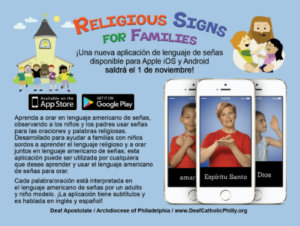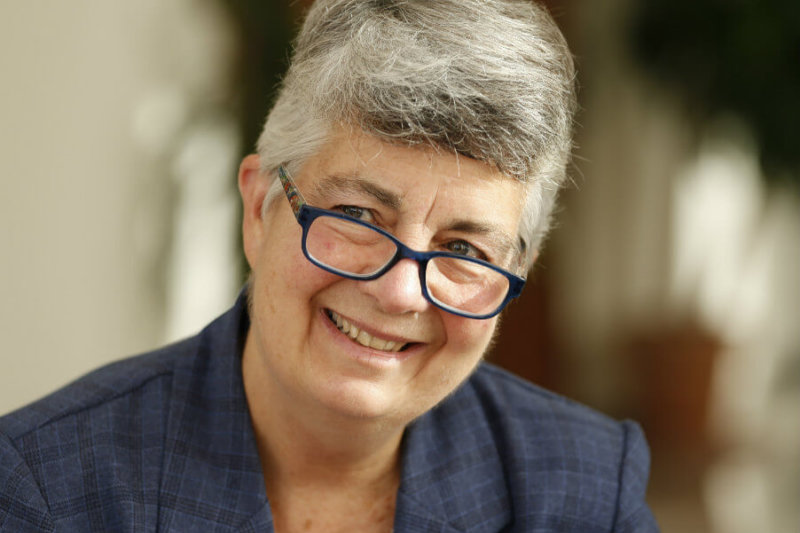VATICAN CITY —When Sister Kathleen Schipani found out she was usually the very first person to teach deaf children to pray, she decided there had to be an app to fix that.
Learning to pray usually happens in the family, when a parent or relative recites the words for grace before meals, asks for blessings or requests guidance or protection, the Sister of the Immaculate Heart of Mary told Catholic News Service in Rome.
But when a child is born deaf into a hearing family, those kids shouldn’t have to miss out on learning Catholic prayers or religious terms as they learn American Sign Language, she said Oct. 20.
Sister Schipani, who is director of the office for persons with disabilities and the deaf apostolate at the Archdiocese of Philadelphia, was in Rome as part of a conference sponsored by the Pontifical Council for Promoting New Evangelization. The gathering Oct. 20-22 was dedicated to sharing best practices in engaging and catechizing persons living with disabilities.

Lots of apps exist for learning ASL, she said, but there is nothing dedicated to religious terms, daily devotions or prayers of blessing, love, thanks and praise. The app meant to fill that gap is called, “Religious Signs for Families,” and was to be available from the iTunes App Store and Google Play in early November.
“The locus of learning your faith starts in the family, so this app is really to provide families with the ability” to foster prayer in the home and bond with each other and with God as they pray in ASL, she said. It also will help teachers who want to teach elementary school students how to pray using sign language.
“Deaf people have deep experiences of prayer,” she said, particularly because it involves praying with “their whole body” with signing and visualization.
“Deaf people have never heard the language that we speak so they are not hearing the little voice in their head like we are,” she said. Instead some people say they pray visually with beautiful imagery or with seeing hands signing in their head.
While sacred music does not have the same ability to draw deaf individuals to prayer, sacred or beautiful art does, she said.
“A lot of deaf people have not been catechized because there was no one to sign to them, and that really is what the sad thing is — when there is no opportunity for deaf people to know religious language and have an experience of someone teaching them,” she said.
Sister Schipani said the beautiful thing about sign language is the signs are often “iconic,” reflecting what the thing is and, therefore, they can convey the theology behind the concept.
For example, she said, the sign for “heaven” in the Jewish faith is moving both hands in a way that suggests a semi-circular dome — the heavens — overhead.
In the Christian faith, she said, the sign conveys the canopy of heaven, but with the other hand going through and up, “because we believe that Jesus, our savior, has come and we’re saved so we can have the possibility of entering heaven.”
Copyright ©2017 Catholic News Service / U.S. Conference of Catholic Bishops


